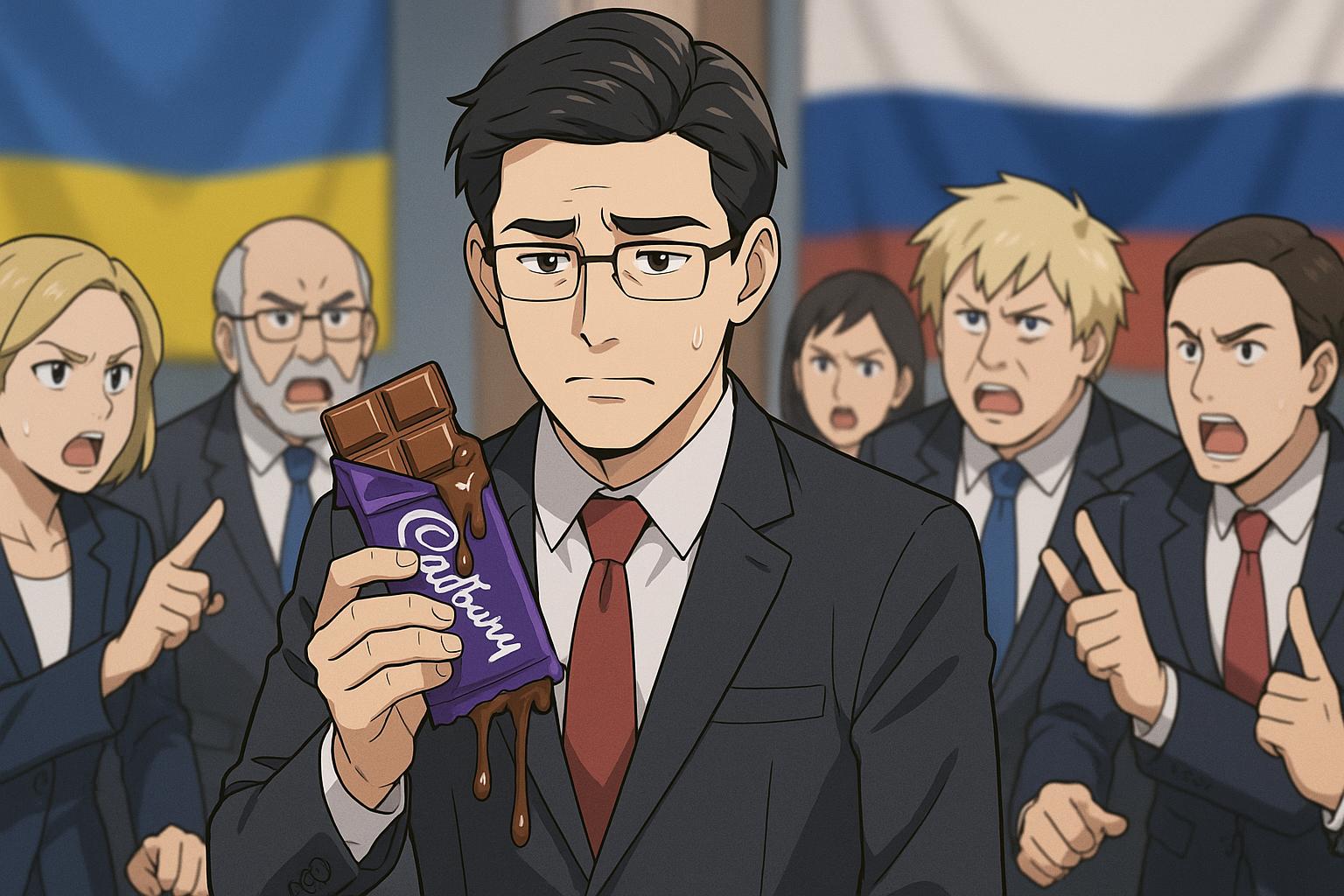Leading members of Parliament have sharply criticised Mondelez, the parent company of Cadbury, accusing it of prioritising profits over ethical considerations amid the ongoing conflict in Ukraine. More than 70 UK MPs and peers have formally called on the company's CEO, Dirk Van de Put, to withdraw its operations from Russia, stating that the continued sale of Cadbury chocolate effectively funds Russia's military actions in Ukraine.
Alex Sobel, chairman of the All-Party Parliamentary Group on Ukraine, characterised the lack of response from Mondelez as 'disrespectful' to Parliament. He stated emphatically, "Mondelez must exit Russia now or face the consequences of funding the Kremlin's war machine." This sentiment is echoed throughout the political landscape in the UK, where growing discontent exists concerning companies that maintain business ties to Russia during these turbulent times. Tory MP Sir John Whittingdale remarked that the firm appeared “too busy” counting its profits to engage meaningfully with legislative concerns about its operations.
Critics have pointed to the ethical ramifications of such decisions. An open letter published in the Financial Times has labelled Van de Put’s justification for remaining in Russia as contradictory to Cadbury's long-standing legacy of social responsibility. The letter warns of risks including potential complicity in war crimes and challenges companies to align their practices with human rights principles by withdrawing from Russia altogether. There's a growing argument that staying in Russia not only undermines ethical standards but also weakens a brand's reputation, particularly one with roots in Quaker values like Cadbury.
Despite the mounting pressure, Mondelez maintains that a full withdrawal from Russia could be detrimental, arguing that it would leave operations vulnerable to confiscation by the Kremlin. The company claims to have "scaled down" its activities in the country; however, it still operates three factories there and generates approximately 2.8% of its global revenues from Russian operations. This ongoing engagement has drawn ire from both MPs and consumer advocacy groups, which argue that Mondelez's presence contributes to a financial lifeline for the Russian state.
Mondelez has not been insulated from the broader scrutiny affecting multinational corporations. While major shareholders, including investment giants like Vanguard and BlackRock, have not exerted pressure for an exit from Russia, public sentiment and ethical calls for action are becoming increasingly insistent. The company's commitment to transparency regarding its activities in Russia could play a pivotal role in mitigating reputational damage. Previous reports indicate that Mondelez is not alone in facing criticism, with other corporations such as Nestlé and Unilever also grappling with similar ethical dilemmas.
In addition to calls from UK parliamentarians, international pushback against Mondelez has emerged, highlighting a unified front against businesses perceived as complicit in supporting Russia during its military invasion of Ukraine. Notably, West Midlands Mayor Andy Street has also emphasised the inconsistency between UK taxpayers' support for Ukraine and Mondelez's continued business operations, which critics argue bolster the regime accused of committing serious human rights abuses.
In light of these developments, the future of Mondelez's operations in Russia hangs in the balance. As the international community continues to apply pressure, the company faces a critical juncture that will likely define its ethical standing for years to come.
Reference Map:
- Paragraph 1 – [1], [5]
- Paragraph 2 – [1], [2], [6]
- Paragraph 3 – [4], [7]
- Paragraph 4 – [3], [4], [6]
- Paragraph 5 – [5], [6]
- Paragraph 6 – [7]
Source: Noah Wire Services
